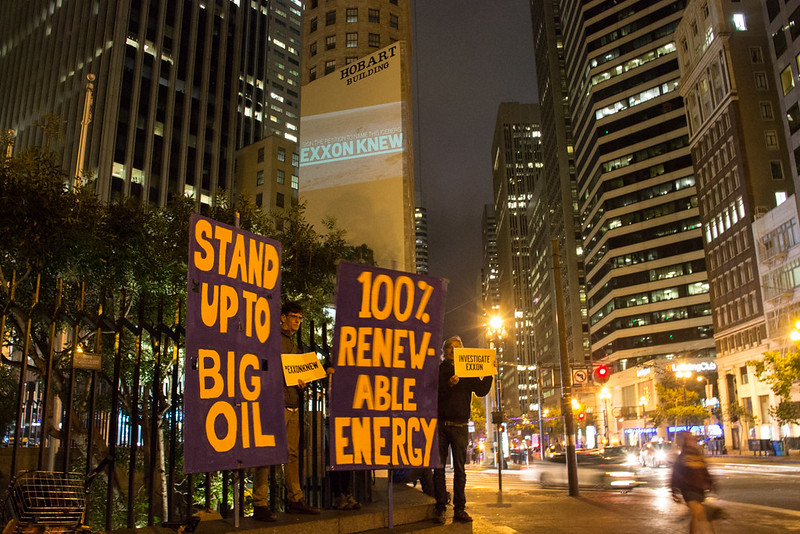 In 2015, revelations about natural gas company ExxonMobil took the world by storm.
In 2015, revelations about natural gas company ExxonMobil took the world by storm.
An investigation by the Los Angeles Times, InsideClimate News, and the Columbia Graduate School of Journalism exposed how Exxon had known about climate change since the 1970s.
This month, a new study dropped another bombshell – Exxon’s scientists had predicted the impacts of fossil fuels on global warming. In fact, their models were sometimes even more accurate than those in independent and government research.
However, the company has fiercely denied climate change and has misled the public through disinformation campaigns spanning decades.
What Exxon Knew
In the 1970s, scientists at Exxon measured carbon dioxide emissions by installing specialized equipment on supertankers. Their research documented the rates at which CO2 was released into the ocean and atmosphere.
The new study, published in Science magazine, analyzed Exxon scientists’ findings and discovered that 63-83% of their climate projections were accurate.
Exxon’s science was so advanced that it actually surpassed NASA's research in terms of accuracy. Their scientists not only predicted when global warming would begin but accurately estimated when it would approach a dangerous level.
They also projected 0.2 degrees Celsius of warming per decade and rejected the theory that a second ice age would occur. This was a hotly debated topic at the time, making their findings all the more groundbreaking.
Exxon’s History of Deception
 In direct contradiction to their scientists’ findings, Exxon pursued a path of climate denial.
In direct contradiction to their scientists’ findings, Exxon pursued a path of climate denial.
The company has had a decades-long record of casting doubt on climate models. Since the 1980s, Exxon executives have amplified public uncertainty about climate science. Exxon has lent credibility to the debunked ice age theory and denied the contribution of fossil fuels to global warming.
Despite facing dozens of lawsuits and questioning from the US government, Exxon and other companies have stuck to their narrative. Since the 2015 allegations, Exxon has also worked to push back against the grassroots activist movement #ExxonKnew and even accused the Columbia Graduate School of Journalism of violating its ethics. In response to the latest findings, Exxon issued a press release stating that “those who talk about how ‘Exxon Knew’ are wrong in their conclusions.”
Critics of Exxon have likened their disinformation campaigns to those carried out by the tobacco industry, which sought to deny the dangers of smoking. However, the profit-motivated campaigns of Exxon and other oil companies are not just endangering human health, but the well-being of the Earth.
As the effects of climate change become more destructive, we need to hold our political and business elites accountable for their contributions.
Sources: NY Times, BBC, Guardian, Scientific American, NPR, Science







